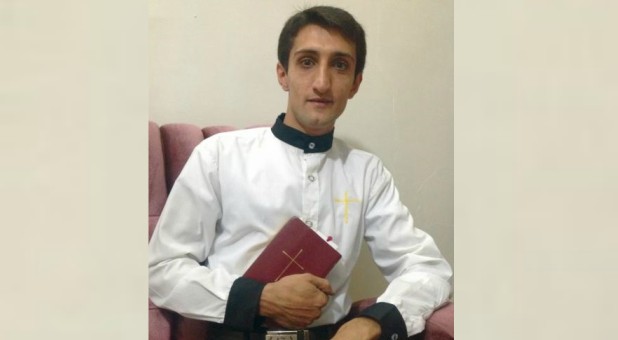114 Christians Arrested in Past Week, 150 in the Past Month
Over 100 Christians have been arrested in the past week and nearly 150 in the past month as part of the Iranian government’s attempt to “warn” Christians against proselytizing over Christmas, according to the advocacy director of religious freedom charity Article 18.
Mansour Borji called the number of arrests—114 in the past week alone—”staggering.” In the past month, he said a total of 142 Christians have been arrested in “10 or 11 different cities” across the country and belonging to different Christian groups.
Borji told World Watch Monitor that most of those arrested were allowed to go home after a few hours, or in some cases days—”as they had arrested so many of them and didn’t know what to do with them all”—but all were told to expect a call from the Ministry of Intelligence.
Each of the Christians had their mobile devices confiscated, while those suspected to be the leaders of the groups remain in detention.
Borji added that the Christians were asked to write down details of the history of their Christian activities and told to have no more contact with any other Christians or Christian groups.
At the end of last week, the government-approved news agency, Mehr, claimed that some of those arrested were foreign nationals who had taken Iranian names, as reported by Radio Farda.
News of the arrests comes in the week that the mother of one long-term Christian detainee, Ebrahim Firouzi, died and was buried, without her son being allowed to see her in her final days or attend the funeral.
Kobra Kamrani, who had cancer and had lost her eyesight, died on Monday, Dec. 3, and was buried the following day, as is customary in Iran.
Within the last month, as her health deteriorated, she had pleaded with the authorities to allow her son to visit her one last time, but her pleas were rejected.
Following his mother’s death, Firouzi, who has been in prison since 2013, asked for a furlough to attend his mother’s funeral, but his request was also denied.
Who is Ebrahim Firouzi?
Ebrahim Firouzi was 28 when he was charged with “promoting Christian Zionism”following his arrest in March 2013. At his July 2013 trial at the Revolutionary Court in his hometown of Robat Karim, just to the southwest of Tehran, he was also charged with “attempting to launch a Christian website, contact with suspicious foreigners and running online church services.”
He rejected all the charges, saying the allegations against him had been fabricated.
In August 2013 he was jailed for one year and also sentenced to two years in exile in the remote city of Sarbaz, near the Pakistan border in Iran’s southeast.
“Evangelism activities … are considered to be in opposition to the regime of the Republic Islamic of Iran,” read the court’s statement.
He was due for release in January 2015 but was kept in prison and retried in March 2015 under new charges of “acting against national security, gathering and collusion.” He was sentenced to a further five years in jail, where he has suffered beatings and been dragged against his will to an appeals hearing, only for the hearing to be postponed.
Firouzi is in Rajaei Shahr Prison in Karaj, Tehran’s sister city, located just to the west of the capital. Borji told World Watch Monitor that while Evin Prison in Tehran is “notorious” as the place where many political prisoners ended up in the ’70s and ’80s, today Rajaei Shahr Prison could be considered “even worse”, as many criminals are held there, including IS sympathizers and other extremists.
In July last year, Firouzi went on a hunger strike to protest against a previous surge in arrests of Christians.
Following the mistreatment of new Christian believers and converts by the judicial authorities, refusing Christian prisoners access to Christian literature, and issuing unjust and hefty verdicts and sentences against new Christian believers and converts to the point that in the recent months tens of Christians have been sentenced to long years of imprisonment, I hereby announce going on hunger strike, commencing on 17 July 2017, for a period of 10 days, in support of the rights of fellow Christians,” he wrote. “I have announced my concerns about these limitations on Christians to the judiciary of Tehran in a letter dated 16th July 2017: the regime of Iran does not determine or confirm the Christian faith of people and this matter is entirely within the jurisdiction of the Church.
Other Iranian Christians have also gone on hunger strikes to protest against their treatment, including Maryam Naghash Zargaran, whose case was highlighted by Amnesty International in 2016 when it criticized Iran’s “cruel” denial of medical care in its prisons, and Amin Afshar-Naderi, who is serving a 15-year sentence: 10 years for “acting against national security by organizing and conducting house-churches” and an additional five for “insulting the sacred” (blasphemy).
{eoa}
This article originally appeared on World Watch Monitor.














































